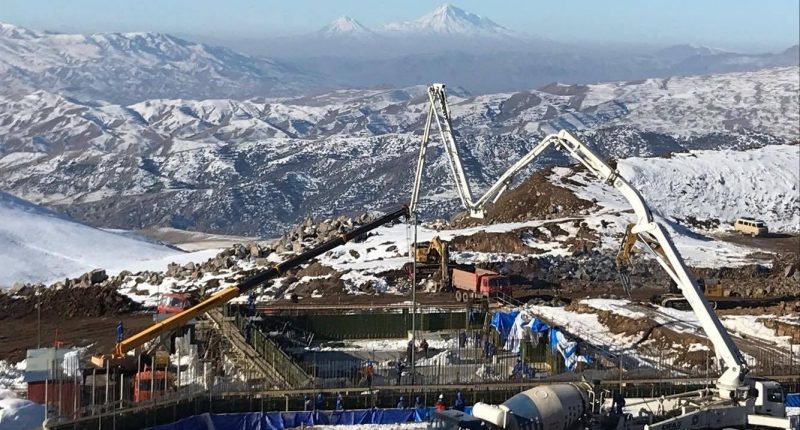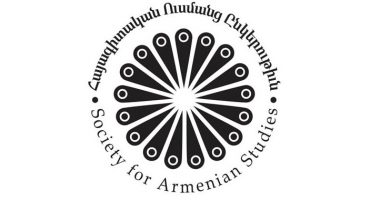YEREVAN (RFE/RL) Mining operations at Amulsar gold deposit will speed up economic growth in Armenia, boost the country’s tax revenue and result in thousands of new jobs, a senior Armenian government official said on Tuesday.
A British-registered company, Lydian International, began building mining facilities there in August 2016. The construction process has been frozen since several dozen protesters began blocking all roads leading to Amulsar in June 2018. The protesters say that gold production there would inflict serious damage on the environment, a claim strongly denied by Lydian.
Prime Minister Nikol Pashinyan indicated on Monday that his government will enable Lydian to restart the controversial project. Pashinyan cited the newly released findings of an environmental audit conducted by a Lebanese consultancy, ELARD. It essentially concluded that the project does not pose serious environmental risks.
According to Deputy Economy Minister Avag Avanesyan, Lydian has invested $350 million in Amulsar and will spend another $130 million before launching mining operations there. Citing his ministry’s estimates, Avanesyan said the U.S.-headquartered company will initially produce $250 million worth of gold annually.
“This means that the direct impact on GDP will amount to 1 percent,” he told RFE/RL’s Armenian service. “The indirect impact will be close to 1.4 percent, according to our calculations.”
The Amulsar mine, Avanesyan went on, will employ some 750 people. Another 3,000 or so jobs should be created by Armenian firms that will be linked to the mining operation in one way or another, said the official. He also stressed that Lydian is due to pay around $50 million in annual taxes.
Hayk Gevorgyan, a senior pro-government lawmaker, defended Pashinyan’s decision to give the green light for the project, while saying that “our economy can develop even without growth in the mining sector.” He said the government decided not to pull the plug on the project because it does not want to be taken to an international court of arbitration and risk at least several hundred million dollars in fines.
Pashinyan announced his position on the Amulsar issue hours after meeting with local government officials and environmental activists strongly opposed to the project. One of those activists, Anna Shahnazaryan, stormed out of the meeting in protest.
Shahnazaryan and another activist, Levon Galstyan, deplored Pashinyan’s stance when they spoke to RFE/RL’s Armenian service (Azatutyun.am) on Tuesday. They claimed that the prime minister was misled by his entourage and the Investigative Committee, a law-enforcement agency that commissioned the ELARD audit as part of a yearlong inquiry into the Amulsar project.
Shahnazaryan brushed aside Pashinyan’s argument that Lydian has pledged to take more than a dozen “mitigating measures” which ELARD believes would minimize environmental risks. She claimed that such measures would be too costly for the company headquartered in the U.S. state of Colorado.
Galstyan, for his part, dismissed as a “gossip” Pashinyan’s claim that the environmentalists’ vocal campaign against Lydian has been sponsored by other mining companies operating in Armenia.
Without naming names, the premier suggested that those companies want to thwart the Amulsar project in order to prevent the government from enforcing stricter environmental standards in Armenia’s entire mining industry. The industry’s environment protection record is notoriously poor.
In July 2018, Lydian released a short video that purportedly showed the driver of a car belonging to Armenia’s largest mining enterprise, the Zangezur Copper-Molybdenum Combine (ZCMC), delivering food to the protesters blockading Amulsar. Lydian accused Vahe Hakobyan, a former government official linked to ZCMC, of involvement in the disruption of its operations in Armenia. Hakobyan denied that, saying that the car was driven by a ZCMC employee who accidentally met one of his relatives on a highway near the under-construction mine.










